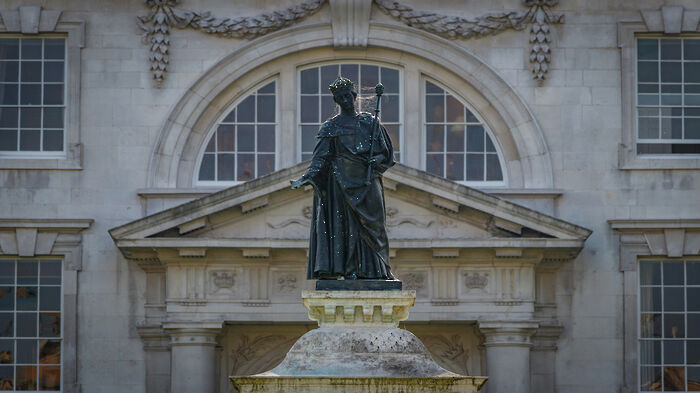Not all literature is ‘universal’ – nor does it have to be
Columnist Sophie Zhang argues for the personal and political importance of art which centres the experiences of marginalised groups

The study of English Literature – be that in schools or in universities – has often centred around texts that claim to explore ‘universal’ themes and experiences. Yet what such curricula fail to recognise is that in glorifying the universal, we neglect the particular. As highlighted by the decolonisation movement, we must recognise that this deficiency exists, and must be addressed, within our own curricula here at Cambridge.
By focusing on traditionally canonical texts curricula continue, as Howard Chae and Faria Tabassum outlined in their recent article, “to centre whiteness and continually place non-white voices on the margins”. For if there exists something that is ‘universal’, its opposite also necessarily exists - that which is marginal. Within literature, the experiences of the marginalised – of people of colour, diaspora, LGBT+ people, people with disabilities – are overlooked in the search for ‘universal’ experiences.
The problem here is twofold: curricula that neglect marginalised voices both deny marginalised individuals the opportunity to understand their own experiences, and deny them a platform of representation and expression. But they also fail to educate individuals in more privileged positions about the struggles that marginalised individuals may face.
“In glorifying the universal, we neglect the particular”
Take, for instance, diasporic literature. Discourse about immigrants often involves a dehumanising portrayal of their lives. Debate revolves around their economic value, or their ability to become ‘good immigrants’ through replacement of previous identities, cultures, and loyalties with unquestioning devotion to their new state. Such conversations leave little – if any – room to discuss the human struggles faced by many immigrants. The loss of a community in which they were once rooted; having to adapt to a completely new culture (potentially receiving little support in attempts to integrate); the need to negotiate changes in their identity – these are all too often neglected in discourse.
How can Cambridge amplify marginalised voices?
Write for Varsity and have your say. Just email our Opinion team with a 100-word pitch.
The beauty of diasporic literature, then, is that it attempts to bridge this gap between crude economic arguments and the full complexity of the diverse experiences of immigrants and their descendants. And it is not literature alone that achieves this feat.
I remember when my German teacher showed us the German-Turkish film Almanya: Welcome to Germany, one of the few times at school that I had been exposed to stories of immigrants. Although it was a comedy, by the end of the film I was in tears. I could not say whether this was because of its bittersweet ending, or because the film reflected parts of my own experience as a child of immigrants. It spoke to me in the finest of details, in whispers from one diasporic group to another: I so clearly remember a scene in which the children tell their parents that they’re getting Christmas wrong. Though a minute detail, this echoed my own experience of teaching both myself and my parents about a new culture while growing up, instead of being able to rely on my parents to teach me.
Sometimes I have felt alone in that world, and felt that I was the only person who had to do what I did. But that film taught me that I wasn’t alone. The navigation of different cultures and the mishaps that occur while doing so are not only common for children of immigrants, but are also sometimes comedic. We must not underestimate the ability of art to convey these nuances.
Literature that focuses on marginalised voices is no less important than texts that focus on so-called ‘universal’ experiences. It is imperative that we support initiatives, such as the decolonisation movement, which seek to diversify the texts platformed in academia. Understanding other people’s experiences undeniably enriches the way in which we think about the world. It exposes us to a wider range of ideas, and makes us more empathetic and understanding of difference. Diversifying the curriculum would benefit everyone, both within and without marginalised groups.
 News / Eight Cambridge researchers awarded €17m in ERC research grants27 December 2025
News / Eight Cambridge researchers awarded €17m in ERC research grants27 December 2025 News / Downing investigates ‘mysterious’ underground burial vault 29 December 2025
News / Downing investigates ‘mysterious’ underground burial vault 29 December 2025 Lifestyle / Ask Auntie Alice29 December 2025
Lifestyle / Ask Auntie Alice29 December 2025 Sport / Hard work, heartbreak and hope: international gymnast Maddie Marshall’s journey 29 December 2025
Sport / Hard work, heartbreak and hope: international gymnast Maddie Marshall’s journey 29 December 2025 Interviews / Meet Juan Michel, Cambridge’s multilingual musician29 December 2025
Interviews / Meet Juan Michel, Cambridge’s multilingual musician29 December 2025









